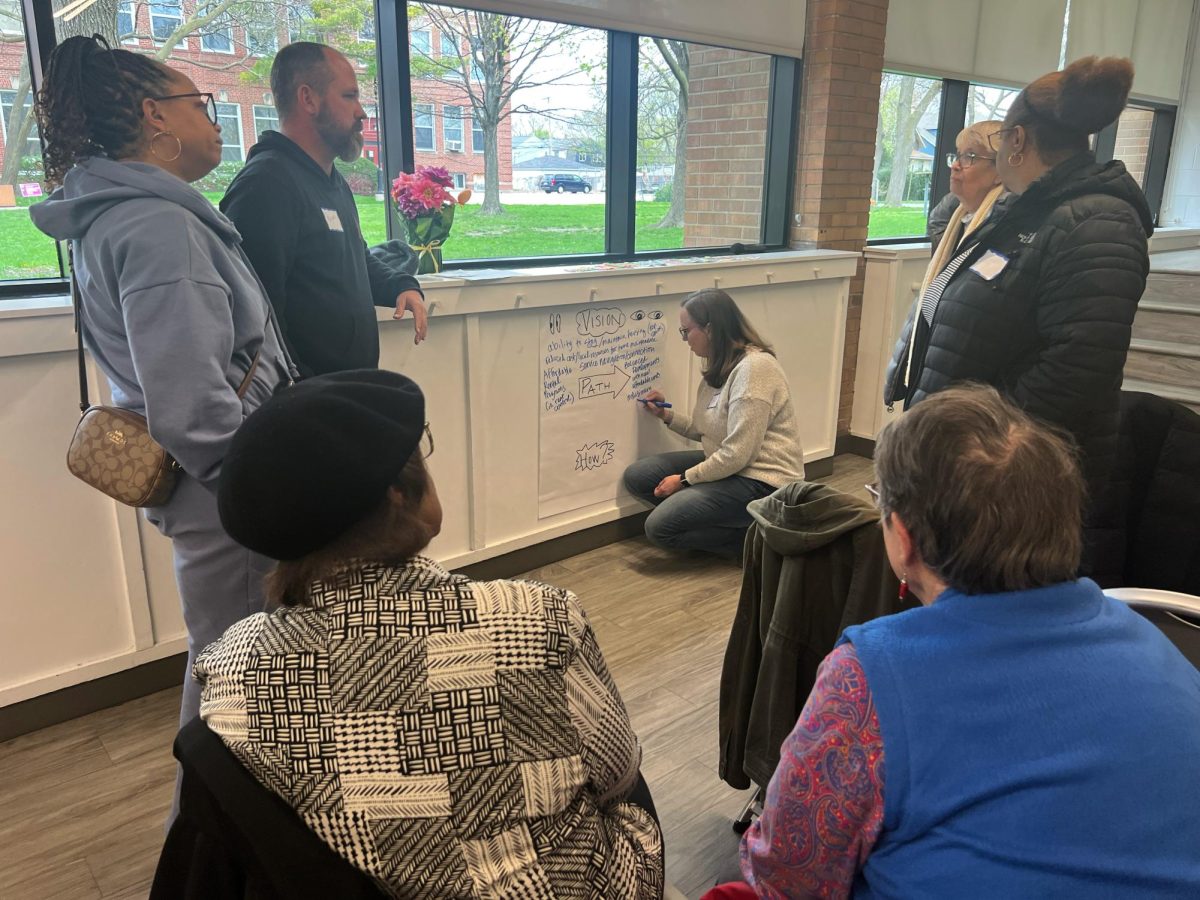Evanston and Skokie residents voiced their concerns on housing affordability Saturday at Homing in on Housing, a housing forum hosted by Community Alliance for Better Government and Skokie Neighbors for Housing Justice.
Held at the Fleetwood-Jourdain Community Center, the event brought together speakers to share about their housing struggles and successes and invited attendees to develop a vision and path to improve housing in the north suburbs.
Sebastian Nalls, president of Community Alliance for Better Government, said the forum was an opportunity for residents to voice their housing needs and “serve as a rallying cry for political action.”
During the forum, affordable housing advocate Gail Schechter said the historical suburban discriminatory housing policies were a result of racism, not chance.
Schechter also pointed to 2019 employment data, which revealed that only 13.9% of Evanston workers live in Evanston. In Skokie, the employee residency rate was 9.6%. The low rates reflect high costs of living in northern suburbs.
Attendee Jill Graham said that Evanston should ensure housing stock reflects the wages of all Evanston workers, ensuring that “anybody who works in Evanston and would like to have their family live in the community where they work would be able to find a place that they could afford to live.”
“This is all about valuing people,” Schechter said. “Not just valuing land.”
Four Evanston and Skokie residents participated in a panel discussion moderated by Evanston activist and producer Meleika Gardner.
Panelist and Skokie homeowner Catharine White said she owns a house that she “can’t afford.” She added that once she moves out of that house, she will likely be unable to live in Skokie due to high rental rates.
White said she’s discovered that she “is not an anomaly” and that other older, single Skokie residents also struggle to afford housing in the area.
William Carter, a resident in the 2014 Wesley Ave. apartment building, described the “frustrating struggle” he and other residents of 2014, 2018 and 2024 Wesley Ave. buildings are facing after being told to vacate their homes.
Evanston has told the Wesley residents to move out by May 13 after the city deemed the buildings’ stairs and landings unsafe in early February.
“All we want is commitment to our future in Evanston,” Carter said.
Evanston residents Dorothy Gill and Cynthia Rios shared their path to securing housing through assistance from community programs.
Gill said she was able to purchase her first home in the 5th Ward thanks to a Community Partners for Affordable Housing program, which empowers individuals and families to secure housing.
Rios said after moving to Evanston in 2003, she experienced recurring houselessness. Through Impact Behavioral Health Partners, a local organization supporting adults with mental illnesses, Rios secured housing for herself and her family.
“I wanted to make Evanston a home for myself and my children,” she said. “I loved the community, I loved the people and I just felt really safe in Evanston.”
After hearing from panelists, attendees participated in small group discussions about their visions for the future of housing in Evanston and Skokie. In groups, they also discussed the path each municipality could take to reach those goals actions individual residents can take.
Skokie activist Charlie Saxe said that most of the attendees prioritized “robust, inclusionary zoning” and affordable rentals.
Saxe added that attendees focused on how residents can vote to replace current Evanston councilmembers with people more responsive to affordable housing concerns.
“Our mission is to humanize housing, recognizing that our friends, family, neighbors are all impacted by the housing policies in our communities,” Nalls said. “Their stories must help us shape the future and inspire true change.”
Correction: A previous version of this article misstated when Cynthia Rios moved to Evanston due to an editing mistake. The Daily regrets this error.
Email: hannahwebster2027@u.northwestern.edu
Related Stories:
— Tenants and landlords discuss proposed changes to housing ordinance at special committee meeting
— Open Communities lawsuit alleges racial, income-based housing discrimination






